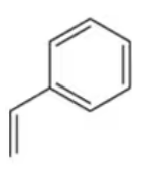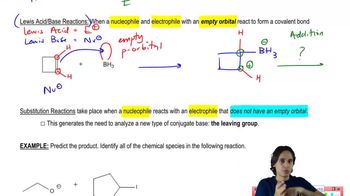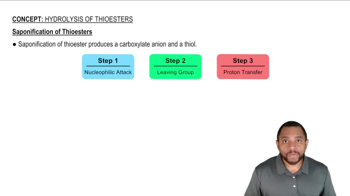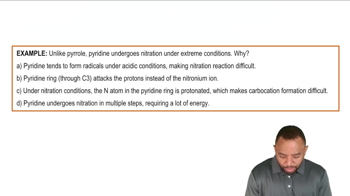The acid-catalyzed dehydration we learned in this chapter is reversible, as shown below.
(a) Propose a mechanism for the formation of an alcohol from an alkene.

 Verified step by step guidance
Verified step by step guidance Verified video answer for a similar problem:
Verified video answer for a similar problem:



 6:32m
6:32mMaster General properties of acid-catalyzed hydration. with a bite sized video explanation from Johnny
Start learning